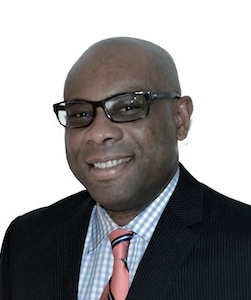
Making the Case for Thought Leaders
Jemila Abdulai | April 12, 2015
Responding To: Week 11: Beyond Economics
Lauren Corke
Africa has experienced a dramatic increase in economic growth over the last two decades. Higher commodity prices and economic diversification have attracted interest and investment, giving development workers and investors a newfound optimism. However, as new economic opportunities pull many out of poverty, others are left behind. Religious or ethnic minorities, indigenous people, and the growing disabled populations of the developing world rarely benefit from investment and growth; they are not considered capable of contributing anything of value. If these excluded groups are to share the benefits of development, social norms and historically entrenched mental models need to change.
Take, for example, disability. The bidirectional link between poverty and disability is undisputed: nearly one-fifth of those living in extreme poverty are disabled. [1] Eighty percent of disabled people live in developing nations, where a variety of barriers – stigmatization, isolation, lack of opportunity, inadequate policies – prevent them from living up to their potential. [2] Some households hide or exile disabled family members. They may view disabilities as a punishment for sinful acts and don’t want to be associated with them. Disabled people are left to wander the streets, forced to beg. They are often victims of abuse and rape.
Exclusion of the disabled has even larger ramifications. As long as barriers are in place, the disabled will be underrepresented in the global workplace, and a large, productive population will remain untapped. In 2004 the World Bank estimated that global GDP lost 1.7 to 2.2 trillion dollars because of disability: a figure that has likely increased as the disabled population grows. [3]
Measures to include the disabled and other excluded groups in society will not only benefit them, but also the communities in which they live. However, as long at societal barriers are in place, and the idea that these excluded groups are inferior persist, progress for the community at large will not help the most disadvantaged. Thus development policy should not focus solely on economics parameters. Social programs that increase awareness, provide protections for the vulnerable, and encourage inclusive growth have special importance.
Lauren Corke is a graduate student in the Global Human Development Program at Georgetown’s School of Foreign Service.
[1] World Report on Disability, World Health Organization and World Bank (2011), p. 1.
[2] Disability and Rehabilitation, Global Programming Note, World Health Organization (2007), p.1.
World Report on Disability, World Health Organization and World Bank (2011), p. 27.
[3] Disability and Development, background paper for the World Bank, Robert Metts, Banque Mondiale, 2004, p.32.

Jemila Abdulai | April 12, 2015

Kailee Jordan and Noureen Ramzy | April 12, 2015

O. Felix Obi | April 12, 2015